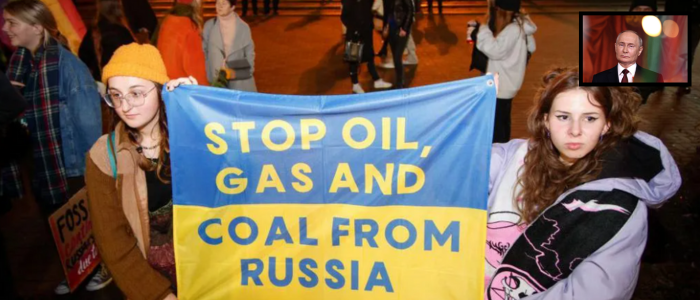And despite sanctions, many Western countries, particularly in Europe, continue to purchase Russian oil and natural gas, helping to finance the war effort. In a report by the Centre for Research on Energy and Clean Air (CREA), €228 billion of Russia's fossil fuel revenue is derived from sanctioning states, with €209 billion from EU member states.
Sanctions Feeble, Loopholes Frequent
Russia's pipeline gas flows to nations like Hungary, Slovakia have continued Russia's pipeline gas exports to countries including Hungary and Slovakia have continued, even as they face spiraling energy bills stemming from the spike in international fuel prices caused by the war in Ukraine, after Western countries banned Russian oil and gas deliveries and the European Union was unable to reach agreement on banning seaborne crude. Russian gas is also fed into Europe via Turkey and these volumes rose 26.77% in early 2025 over 2024.
Natural gas Russia's fossil fuel earnings declined just 5% in 2024, and crude oil earnings were up 6% and pipeline gas 9%. Russian LNG exports, meanwhile, hit record highs with 50 percent of that going to the EU.
The E.U. aims to drop all Russian gas imports by 2027, but detractors argue that current sanctions don't go far enough. Acknowledging that the bloc has shied away from tougher sanctions because of concern about spikes in energy costs and an escalation of the conflict, the EU's foreign policy chief, Kaja Kallas, said, "This situation has unfortunately brought us to the point where we are today."
Refining Loophole and Indirect Oil Sales
A second challenge being addressed is the "refining loophole" in which Russian oil is refined in third countries, including India and Turkey, before being sold as fuel products to the West. According to CREA, about €6.1 billion of Russian crude has been processed in the countries and then shipped to sanctioning countries.
India's petroleum ministry has denied CREA's allegations, saying they are misleading. But this practice is legal if well known, according to Vaibhav Raghunandan, an analyst with CREA, and nothing substantial has been done to stop it.
Former Russian energy official Vladimir Milov also criticized enforcing the G7 oil price cap saying it has not limited Russian income. He cautioned that shifts in the US administration led by Donald Trump could undermine sanctions enforcement.
What Can Be Done?
Experts and activists recommend stepping up enforcement of current sanctions, targeting Russia's "shadow fleet" of tankers and banning Russian LNG imports, among other measures. According to CREA, Russia has more to lose from being denied access to Russian LNG than the European Union, since Russian LNG represented only 5 percent of the EU's total gas use last year.
Donald Trump called for OPEC to slash oil prices to stop the war, but analysts scoffed at the idea. The U.S. shale industry it would hurt more than Russia, Milov said, and Saudi Arabia is unlikely to join in.
The problem was succinctly described by the activist Mai Rosner, who pointed out the contradictory position of the West: "We are financing the aggressor and the resistance at the same time."
















